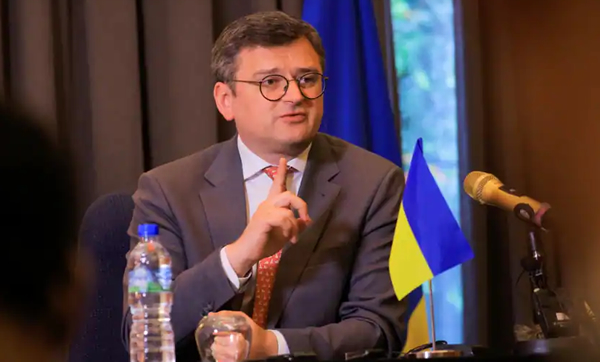
The head of Ukrainian diplomacy Dmytro Kouleba announced to AFP a “long-term” fight to “revive” Kiev’s relations with Africa and reduce the “grip” of Moscow on this continent based, according to him , on “coercion, corruption and fear”.
After decades of oblivion, Kiev has launched an operation of seduction in Africa in the hope of obtaining its support in the face of the Russian invasion of Ukraine which began in February 2022.
“Many years have been lost, but we are going to push forward a Ukrainian-African renaissance, to revive these relations ,” Kouleba said in an interview with AFP on Wednesday. “This continent needs systematic and long-term work ,” added the minister, who has already made three tours in Africa since last fall.
In June, a delegation of African Heads of State led by South African President Cyril Ramaphosa also visited Ukraine.
If “most African countries” still display their “neutrality” in the face of the conflict, “a slow erosion of Russian positions in Africa is underway” , assured the minister, citing Liberia , Kenya , Ghana, the Côte d’ Ivoire , Mozambique, Rwanda and Equatorial Guinea among Kiev’s new partners on the continent.
“We don’t want to be another Russia. Our strategy is not to replace Russia, but to liberate Africa from Russian rule,” he said.
Mr. Kouleba accuses the Kremlin of using “coercion, corruption and fear” to keep African countries in its fold while assuring that Moscow had only “two powerful working tools in Africa: propaganda and ( the paramilitary group) Wagner” .
Russia has been engaged for several years in an intense rapprochement with Africa, including through the security services provided by Wagner , particularly in Mali and the Central African Republic, presenting itself as a bulwark against ” imperialism” and “neocolonialism ” Western.
Kouleba also slams Moscow’s concerns about Africa’s food security as “lies” after it pulled out of a crucial deal that saw 33 million tonnes exported in one year of Ukrainian grain through the Black Sea, despite the Russian invasion.
“Africans have seen that all these stories of (Vladimir) Putin about how he cares about African countries are lies,” Kouleba said.
Moscow’s abandonment of this agreement in July raised fears of a rise in cereal prices which particularly affects the poorest countries. The Russian president then promised to deliver free grain to six African countries. “It is the Ukrainian farmer and the African consumer of bread who pay the most (the exit from Moscow),” said Kouleba.
Source: africanews.com























